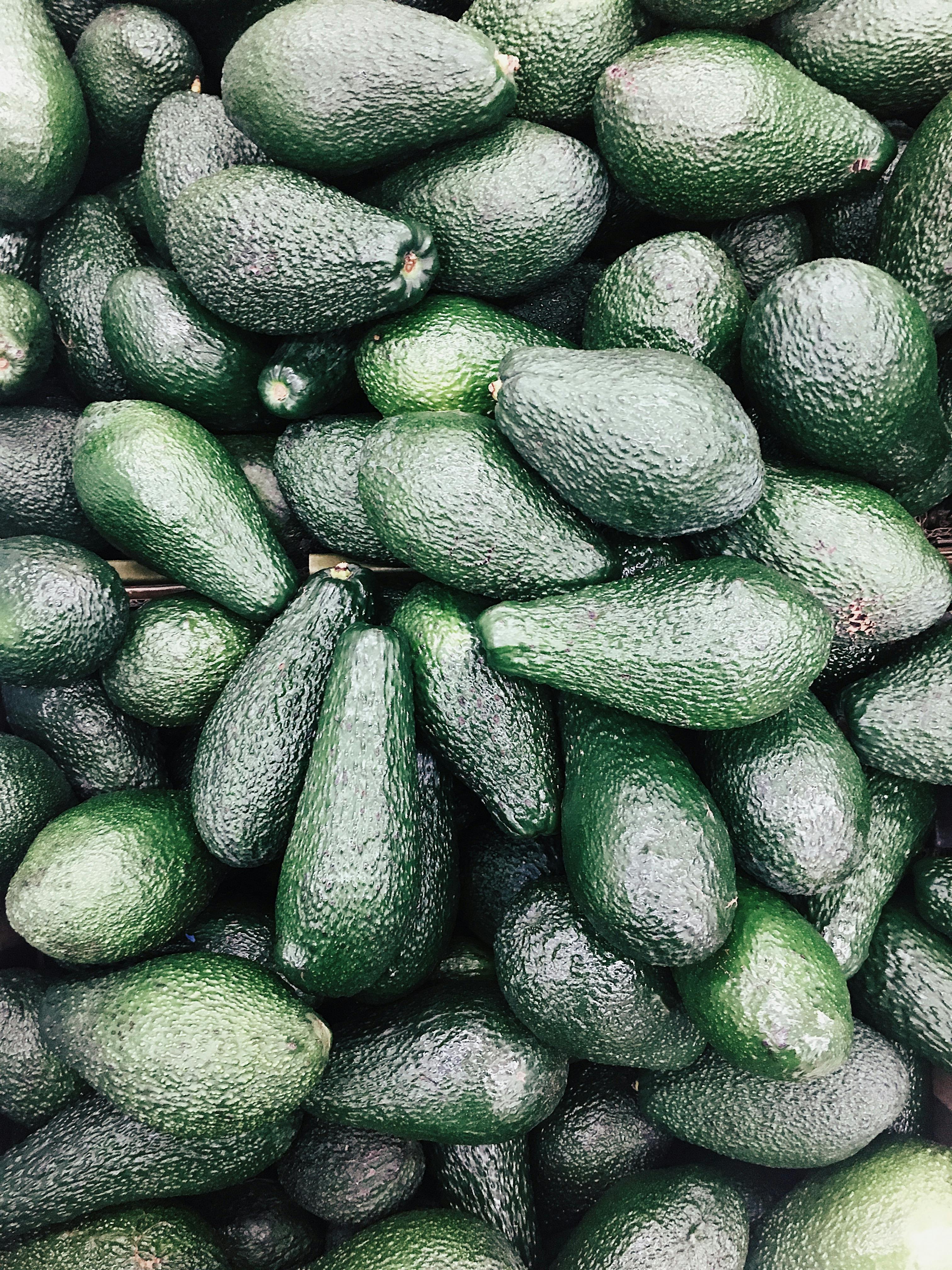Apply Now
Comprehensive Guide to Carnivore Diet Results: What to Expect in 2025

The carnivore diet has gained significant traction over the past few years, positioning itself as a viable alternative for those seeking dietary change and improved health outcomes. This all-meat approach emphasizes the consumption of animal-based products and has sparked interest due to its claims of promoting weight loss, mental clarity, and even enhanced gut health. But what can you genuinely expect from this diet regimen as we move into 2025?
In this comprehensive guide, we delve deep into the expected results of following a carnivore diet and explore the numerous benefits, challenges, and testimonials associated with it. We'll address common misconceptions, the sustainability of the diet, and practical tips to help you embark on this journey. By the end of this article, you'll have all the critical information needed to understand the impact of the carnivore diet on your health, along with strategies for successful implementation.
Join us as we explore the vibrant world of the carnivore diet!
Essential Benefits of the Carnivore Diet for Health and Weight Loss
The carnivore diet is widely known for its potential health benefits, much of which stems from its high protein content, low carbohydrate intake, and focus on whole, nutrient-dense foods.
Weight Loss on the Carnivore Diet
Many followers of the carnivore diet experience significant weight loss. This is often attributed to the high protein intake, which leads to increased satiety and reduced hunger levels. Unlike traditional diets that emphasize calorie restriction, the carnivore diet allows individuals to eat until satisfied, potentially leading to a natural decrease in calorie consumption.
Research indicates that the absence of carbohydrates plays a crucial role in the body’s ability to tap into fat reserves for energy, thus promoting fat loss. Furthermore, the simplicity of a meat-based meal plan can reduce food-related stress, contributing to better adherence and lower chances of diet fatigue.
Carnivore Diet Benefits for Gut Health
Another important advantage of the carnivore diet is its noteworthy impact on gut health. Many adherents have reported improvements in digestive issues and overall gut microbiome balance. The elimination of plant-based foods, which can sometimes provoke sensitivities or digestive discomfort, allows the gut to heal and may facilitate better nutrient absorption.
Studies hint at the possibility that certain animal-based nutrients can be beneficial for gut lining integrity, promoting healing and reducing inflammation. This is particularly pertinent as gut health is increasingly recognized as a cornerstone of overall wellness.
Mental Clarity and Cognitive Benefits
In addition to physical health benefits, many carnivore dieters report enhanced mental clarity and focus. A meat-based diet impacts brain function positively due to its high content of omega-3 fatty acids and other essential nutrients found in animal products.
Carnivore diet advocates often share testimonials indicating improvements in mood and cognitive function. The elimination of blood sugar variability, often associated with carbohydrate intake, may also contribute to stable energy levels throughout the day.
With these foundational benefits established, it’s essential to understand practical strategies for starting and maintaining the carnivore diet.
How to Start the Carnivore Diet: A Beginner’s Guide
Transitioning to a carnivore diet can seem daunting, but with proper planning, it can be a seamless process.
Meal Planning for the Carnivore Diet
Creating a structured meal plan is vital for successfully adapting to the carnivore diet. Start by focusing on high-quality meat sources such as grass-fed beef, pastured pork, and wild-caught seafood, ensuring that your protein is nutrient-dense and free from additives.
Incorporate various cuts of meat, including organ meats, as they are nutrient powerhouses. Resources like carnivore diet meal prep guides can help streamline grocery shopping and meal preparations, making your culinary journey enjoyable and successful.
Overcoming Common Challenges When Transitioning
Adjusting to a diet devoid of plant foods can present numerous challenges. Common hurdles include cravings for carbohydrates and managing social situations where food plays a central role.
To combat cravings, it's beneficial to plan satiating meals that include high-fat options such as ribeye steaks or fatty fish. Staying committed during social events can involve planning ahead and bringing your own snacks or meals. Engaging with online carnivore communities can also provide support and encouragement.
Essential Cooking Techniques for Meat-Based Meals
Understanding cooking techniques can elevate your experience on the carnivore diet. Grilling, roasting, and slow-cooking are excellent methods to enhance flavors and create sumptuous meals.
Experiment with different spices and cooking styles to keep your meals exciting while staying aligned with the carnivore principles. The culinary uses of meat are vast, ranging from barbecued ribs to savory bone broth—flexibility in preparation can keep your meals interesting.
Now that we’ve covered how to start, let's explore some real-life testimonials and results from carnivore diet followers.
Carnivore Diet Testimonials: Real-Life Experiences
The strength of any diet often lies in shared experiences. Many fans of the carnivore diet have turned to social media platforms to discuss their journey, offering motivation and insight into the potential results one can expect.
Success Stories from Carnivore Diet Enthusiasts
Numerous testimonials illustrate successful weight loss transformations, enhanced energy levels, and improved mental health. People have shared instances of significant body composition changes, highlighting reductions in body fat and increases in muscle definition.
For example, individuals who struggled with obesity reported shedding excess pounds within weeks of adopting the diet. Such success stories serve as powerful testaments to the effectiveness of animal-based nutrition.
Scientific Support and Carnivore Diet Research
While anecdotal evidence is compelling, scientific research into the carnivore diet is still emerging. Clinical studies are beginning to explore its long-term effects, nutritional deficiencies, and overall safety.
Early findings suggest that massive shifts in dietary patterns can yield profound health outcomes, including improvements in metabolic health markers and inflammatory responses. Continued research will be crucial in substantiating these claims and addressing prevalent concerns about a meat-based diet.
Managing Expectations with the Carnivore Diet
It’s essential to maintain realistic expectations when starting this diet. While many may experience significant benefits quickly, others might face challenges or slower progress. Acknowledging individual differences in metabolism, lifestyle, and dietary preferences is vital.
This leads us into important considerations about potential health risks and challenges associated with the carnivore diet.
Addressing Health Risks and Challenges of the Carnivore Diet
Like any dietary approach, the carnivore diet carries potential risks and challenges that individuals need to navigate.
Nutritional Deficiencies and Dietary Balance
One significant concern is the risk of nutritional deficiencies. By eliminating plant-based foods, dieters may miss out on essential vitamins, minerals, and fiber that contribute to health. It’s crucial to focus on variety within animal products to ensure adequate nutrient intake.
Integrating organ meats can be beneficial to mitigate deficiencies. Monitoring nutrient profiles is advisable, particularly during the initial phases of the diet.
Long-term Effects of a Carnivore Diet
The long-term ramifications of adhering to a strict carnivore diet remain a topic of ongoing debate. Some health experts express caution against potential increases in cholesterol levels and impacts on cardiovascular health.
Engaging with healthcare professionals and undergoing regular health assessments can help maintain health equilibrium while following this diet.
Emotional Wellbeing and Food Relationships
Adopting a carnivore diet can alter one's relationship with food, impacting emotional wellbeing and social interactions. It's essential to stay mindful of emotional eating patterns and develop coping strategies for any stressors that arise.
Connecting with like-minded individuals in the carnivore diet community can provide support and encouragement, enhancing the overall experience.
In understanding potential challenges, it's crucial to also recognize the importance of community support and accountability to foster a sustainable journey.
Community Support and Resources for Carnivore Diet Success
A support network plays a critical role in achieving success while navigating the carnivore diet.
Finding Your Tribe: Engaging with the Carnivore Community
Establishing connections within the carnivore community can offer motivational support, shared recipes, and valuable tips for overcoming obstacles. Online forums and social media groups are excellent platforms for finding camaraderie and encouragement.
Participating in local meet-ups or virtual webinars can also facilitate discussions about personal experiences, allowing for a rich exchange of knowledge.
Useful Resources and Tools for Monitoring Progress
Tracking progress can be incredibly beneficial for maintaining motivation and accountability. Various apps and journals are available to log dietary intake, physical adjustments, and emotional states throughout the journey.
Additionally, referring to professional resources, such as dietitians specializing in animal-based nutrition, can provide tailored guidance and recommendations.
Expert Recommendations for Carnivore Diet Success
Seeking expert guidance can significantly improve individual outcomes on the carnivore diet. Consulting with healthcare professionals can help prioritize health markers and provide personalized insights for long-term adherence.
Understanding macros, meal composition, and the importance of hydration on the carnivore diet is crucial for optimal results. Utilizing expert advice helps navigate difficulties and achieve sustainable eating habits.
As we look toward the future of dietary practices in 2025, you are now equipped with detailed knowledge and insight into the carnivore diet.

Conclusion: Embracing a Carnivore Lifestyle
The carnivore diet presents a unique approach to nutrition that emphasizes meat consumption while challenging conventional dietary norms. Through increased understanding of its benefits, risks, and successes, individuals have the opportunity to effectively integrate this diet into their lives.
By focusing on quality meats, meal prep strategies, and community support, achieving desired health outcomes is within reach. As we approach 2025, it’s crucial to stay informed about scientific research, evolving dietary guidelines, and personal experiences to maximize success on this transformative diet path.
As you embark on or continue with your carnivore journey, remember to listen to your body, adapt to your needs, and enjoy the culinary possibilities this diet offers. Your health and well-being are worth the investment.
 The carnivore diet has gained significant traction over the past few years, positioning itself as a viable alternative for those seeking dietary change and improved health outcomes. This all-meat approach emphasizes the consumption of animal-based products and has sparked interest due to its claims of promoting weight loss, mental clarity, and even enhanced gut health. But what can you genuinely expect from this diet regimen as we move into 2025?
In this comprehensive guide, we delve deep into the expected results of following a carnivore diet and explore the numerous benefits, challenges, and testimonials associated with it. We'll address common misconceptions, the sustainability of the diet, and practical tips to help you embark on this journey. By the end of this article, you'll have all the critical information needed to understand the impact of the carnivore diet on your health, along with strategies for successful implementation.
Join us as we explore the vibrant world of the carnivore diet!
The carnivore diet has gained significant traction over the past few years, positioning itself as a viable alternative for those seeking dietary change and improved health outcomes. This all-meat approach emphasizes the consumption of animal-based products and has sparked interest due to its claims of promoting weight loss, mental clarity, and even enhanced gut health. But what can you genuinely expect from this diet regimen as we move into 2025?
In this comprehensive guide, we delve deep into the expected results of following a carnivore diet and explore the numerous benefits, challenges, and testimonials associated with it. We'll address common misconceptions, the sustainability of the diet, and practical tips to help you embark on this journey. By the end of this article, you'll have all the critical information needed to understand the impact of the carnivore diet on your health, along with strategies for successful implementation.
Join us as we explore the vibrant world of the carnivore diet!

